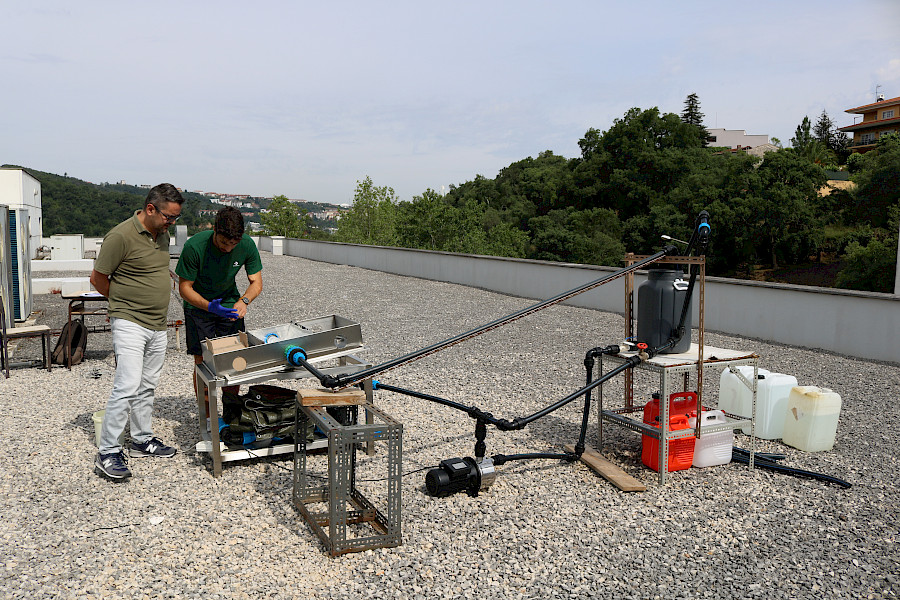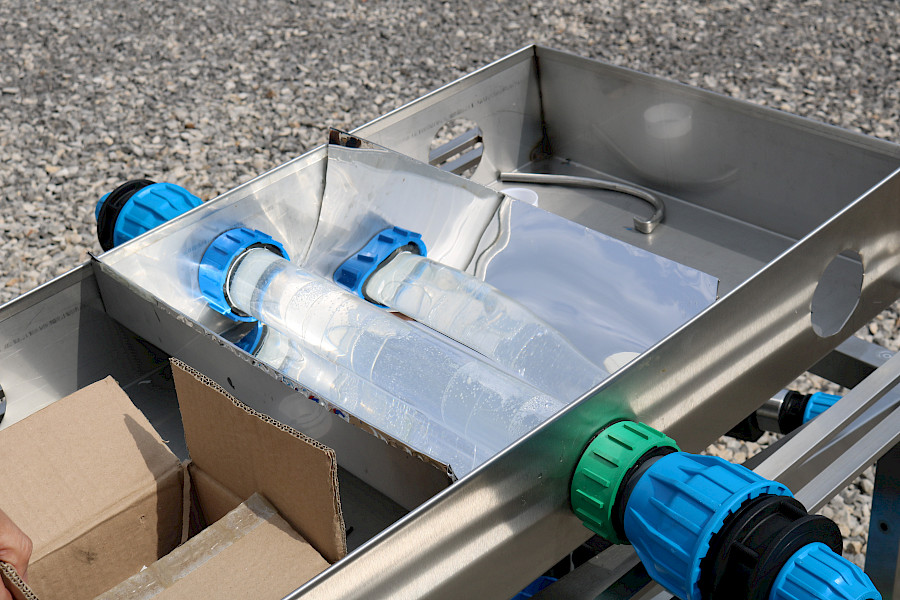UC scientists develop system that removes contaminants of emerging concern from wastewater
The PhotoSupCatal project, which ends later this month, aims to obtain reusable water for agricultural irrigation.
Abridged version in English: Diana Taborda
A research team of the Department of Chemical Engineering of the Faculty of Sciences and Technology, University of Coimbra (DEQ – FCTUC) has developed a supported solar photocatalysis reaction system able to remove chemical and biological pollutants from domestic wastewater.
The project Photosupcatal: Development of supported catalytic systems for wastewater treatment by photo-assisted oxidation has as its main objective to find a tertiary treatment able to remove emerging contaminants from domestic wastewater in a way that protects ecosystems, as well as to try to obtain water that can be reused in irrigation, for example. Besides the chemical compounds, the researchers also analysed the potential for disinfection, and more specifically the impact that this process has on Escherichia coli bacteria, with promising results.
Rui Martins, DEQ professor and researcher at the Chemical Processes and Forest Products Engineering Research Centre (CIEPQPF) explains that “Although domestic wastewater goes through the usual biological treatments, some chemical pollutants that are emerging from human consumption, namely from cosmetic and pharmaceutical products, are still not being considered. These products release molecules into wastewater that are present in very small amounts but which, due to their complexity, cannot be treated biologically, which is the most common process in municipal wastewater treatment plants”.
According to Rui Martins, “The treatment process we are considering is photocatalysis, i.e. we have a catalyst activated by light and this causes the production of radicals, which are very unstable and reactive structures that degrade organic compounds. As these radicals are not very specific, they can theoretically attack all existing organic matter”. Martins adds that this process uses solar energy as a radiation source, due to its low cost.
In order to produce this new system, the FCTUC team developed a catalytic system with polymer-based supports, namely PDMS and polyaniline. "The results show us that these catalysts are efficient mechanisms for the degradation of the organic pollutants we are testing, and that they are stable for several reuse tests.
According to the DEQ professor, this project is expected to have an impact both on industry - because it will offer a low-cost technology to improve the quality of treated water, allowing its reuse - and on the environment, since it removes emerging contaminants, thus complying with a zero-pollution policy.
The project, co-funded by the European Union, through FEDER, involves the participation of nine researchers from CIEPQPF and is coordinated by Adventech - Advanced Environmental Technologies, a company specialised in the treatment of industrial wastewater and gaseous emissions.


